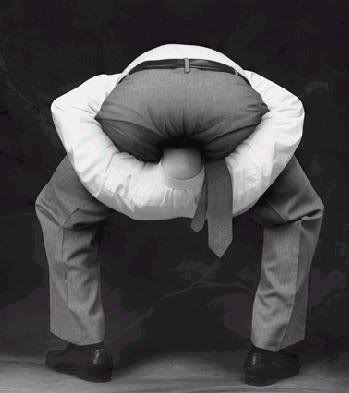
Last week’s jury deliberation in the Libby trial ended with the following question being posed to the judge:
Is it necessary for the government to present evidence that it is not humanly possible for someone not to recall an event in order to find guilty beyond a reasonable doubt?Immediately, observers noted the likelihood of a holdout threatening to prevent the jury from reaching a verdict. Surely, they suggested, one of the jury members is confusing “reasonable doubt” with questions of “human possibility.”
And, although an appropriate answer to their question was a simple and straightforward “NO,” Judge Walton this morning decided to ask them to clarify their question, stating:
I do not fully understand what you mean by "humanly possible." If you can rephrase the question considering the language I gave you in the reasonable doubt instruction, I will assess whether I can provide further guidance to you.The reasonable doubt language is presented below:
Reasonable doubt … is doubt based on reason. … Reasonable doubt is the kind of doubt that would cause a reasonable person, after careful and thoughtful reflection, to hesitate to act in the graver or more important matters in life. However, it is not an imaginary doubt, nor a doubt based on speculation or guesswork; it is a doubt based on reason. The government is not required to prove guilt beyond all doubt, or to a mathematical or scientific certainty.So what do we have here, and why was the judge confused by such a seemingly silly and unnecessary question? How did the discussion of what is “humanly possible” even get introduced in the first place?
My guess is that it really had nothing to do with Libby’s memory, but that one of the jurors is clinging to the idea that it is not humanly possible to know that Libby lied, hence there will always be reasonable doubt!
In trying to get clarification that would shake this idea, the rest of the jury posed the wrong question, and the judge may have tried to get them to rephrase the question in such a way that makes the answer more obvious, even to a stubborn juror!
In my view, the more appropriate question is: Is it humanly possible for a juror to have reasonable doubt that Libby lied? That is - to have doubt based on reason, rather than doubt based on imagination or speculation?
Well, based on imagination, I have no problem speculating about the unlikely confluence of an extremely small-headed yoga master with a very relaxed sphincter. So, in that sense, it is "humanly possible" for one of the jurors to have his or her head up his or her own ass!
But, based on reason, I don’t think so!

No comments:
Post a Comment